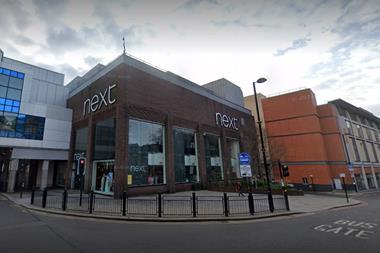It has been a momentous fortnight for those of us caught up in the mission to keep Britain’s high streets alive and kicking.
I headed up to Leeds to UKREiiF, for the three-day conference styled as the new forum aiming to drive economic growth and inclusive investment across the UK. It felt like an event whose time has come: a low-key alternative to Mipim with a deeply UK feel.
Regeneration of our towns and cities was a consistent theme alongside net zero and positive social value generation and the intersectionality between them. Lord Heseltine, who has had a lifelong faith in devolving power to elected local mayors who are then given the tools to make significant public investments, is still flying the flag for regeneration projects.
The British Property Federation organised a breakfast roundtable with Cushman & Wakefield to launch its town centre futures report, ‘Private investment for public good: how property owners can support the future of town centre retail’, which sets out a list of policy recommendations for the regeneration of the high street. Among the list of recommendations are ‘high street accelerators’ – partnerships between a local authority, property owners, the community and other relevant local stakeholders in a town centre, dedicated to encouraging private investor confidence.
Business rates have been one of the barriers, arguably the biggest barrier, to high street regeneration for years, and nothing is going to change until the government accepts that the system is simply too costly for current- and new-generation occupiers to contemplate, which drives entrepreneurialism away from bricks and mortar. The Uniform Business Rate (UBR) sits at its highest-ever level at the beginning of a list (51p in the pound) and is set to be indexed by CPI inflation in 2024, raising the level of the UBR to another record high. The Shopkeepers Campaign, which I chair, has been calling for a significant cut in rates, back to the sustainable UBR level enjoyed when the modern system of business rates was introduced by Lord Lawson (who died last month) in 1990 with a UBR of 34p in the pound.
Meanwhile, the government has been piloting the Non-Domestic Rating Bill through parliament. This is the bill that has emerged from the government’s so-called ‘fundamental review’ and that is so thin in content that it was debated and passed in half an afternoon. While we welcome the bill abolishing downwards transition, which unfairly made occupiers whose valuations had fallen pay more than their fair share of rates, it introduces a new duty-to-notify and penalty regime, which will increase the compliance burden on occupiers. The reduction in revaluation periods from five years to three is welcome, and the Shopkeepers’ Campaign has been trying to persuade ministers to leave open the door to annual revaluations, as this piece of legislation does not get us that far. The bill next moves to the House of Lords for scrutiny.
Ultimately, it is private capital that will transform our high streets and town centres for the better. Business and finance have the skills and potential capital to deliver the politicians’ ambitions to ‘level up’ the country but government needs to meet the private sector part way with a policy framework that enables sustainable investment to be put into place.
Vivienne King is chair of the Shopkeepers’ Campaign






























No comments yet